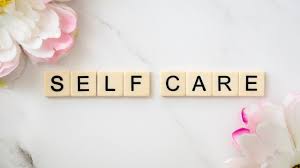
The Importance of Self-Care in Mental Wellness
Self-care has become a buzzword in recent years, but its importance in maintaining mental health cannot be overstated. This comprehensive guide will help you understand and implement effective self-care practices.
Understanding True Self-Care
Self-care goes beyond bubble baths and face masks. It's about making choices that support your physical, mental, and emotional well-being. True self-care involves creating sustainable habits that nourish your whole being.
## Dimensions of Self-Care:
1. Physical Self-Care
- Regular exercise (find activities you enjoy)
- Balanced nutrition
- Adequate sleep (7-9 hours)
- Regular health check-ups
- Staying hydrated
- Taking breaks from screens
2. Emotional Self-Care
- Practicing mindfulness
- Journaling
- Setting healthy boundaries
- Processing emotions
- Seeking therapy when needed
- Engaging in activities that bring joy
3. Social Self-Care
- Maintaining meaningful relationships
- Setting boundaries with toxic people
- Regular communication with loved ones
- Joining support groups or communities
- Making time for social activities
- Learning to say "no"
4. Spiritual Self-Care
- Meditation or prayer
- Spending time in nature
- Practicing gratitude
- Exploring personal values
- Finding purpose and meaning
- Engaging in meaningful rituals
## Creating Your Self-Care Plan:
Step 1: Assessment
- Identify areas of life causing stress
- Recognize current coping mechanisms
- Determine what activities bring you peace
- Consider your available time and resources
Step 2: Planning
- Start small with achievable goals
- Schedule self-care activities
- Create morning and evening routines
- Plan for challenging times
Step 3: Implementation
- Begin with one new habit
- Track your progress
- Adjust as needed
- Be consistent but flexible
Remember: Self-care isn't selfish; it's necessary. When you take care of yourself, you're better equipped to care for others and handle life's challenges.